An Historian’s Take on Writing Historical Fiction
Essay by Steven Leibo Ph.D.
Those of us who are committed to the importance of learning history often site the many advantages gained from an understanding of the past — ranging from the enhanced research and writing skills that studying history offers to nurturing the more sophisticated perspective necessary to operate well in modern society. But most professional historians also realize that these “pay offs” from historical studies usually come only after years of study when, at last, a strong sense of the patterns or as Mark Twain supposedly said, the rhymes of history have had time to develop and mature.
The problem for the classroom teacher is that these clearly recognizable advantages are almost never immediately available to the beginning student or even explainable to the large numbers of young adults who inhabit our general education-based history courses. For them, all too often, history is simply a series of names and dates to memorize with little relevance either to the world they live in or their understanding of their future needs.
Thus the primary task of any historian interested in truly engaging their students is to find a way to make an era that is often dramatically different from their own, compelling enough to arouse the learner to become excited enough to want to learn more. For those engaged in teaching not only about the past but the past of widely different cultures far beyond the borders of the United States or the world of the West, the task can be especially daunting. For here we are often not even dealing with early versions of ourselves but perhaps early versions of Modern Chinese or South Asians, an even greater intellectual leap than the study of American history requires.
With these problems in mind some, though not all, historians have felt compelled to find newer tools to involve the students on a more personal and emotional level than that usually found in the impersonal generalizations that dominate lectures and textbooks. Moreover, these efforts are often disdained by our professional colleagues because many historians believe that any format beyond the lecture, monograph, primary source and textbook approach is somehow heretical.
I have heard historians denounce even the use of professionally produced documentaries as somehow distracting from the real stuff of learning. I personally retain a profound sense of irritated embarrassment from a comment I once made within a very prestigious scholarly seminar, in front of yet, one of the leading scholars of South Asia, that I had used the film Gandhi in class and found it helpful. The look of scorn, the sense that I had somehow claimed to have disrobed in class, remains deeply embedded in my mind to this day. And this negative attitude toward historical recreations is hardly uncommon. A few years back the op-ed page of the New York Times was filled with a particularly nasty attack on those who would seek to use Steven Spielberg’s Amistad to help students understand early nineteenth century America. But these prejudices seem very distant from the reality of my own professional career.
In my own case I have taught widely throughout the United States, from the West Coast through the Midwest and in recent decades in Upstate New York State’s capital region.. My teaching experiences have ranged from large state universities and small private colleges through several community colleges and even extensive teaching on line. And despite the common prejudices of many professional colleagues, these experiences have forced me to recognize that if the students don’t care, do not become engaged and emotionally involved in a subject they will not do their best work or sometimes any work at all. No doubt the situation is different at the nation’s most elite colleges but in the academic universe I work in things are quite different. Either engage them or forget it. It is with that in mind that I have always used historical novels alongside more conventional tools to involve my students.
Over the years, the novels I have used have ranged from Gore Vidal’s Julian and Awad’s Death in Beruit to Emecheta’s The Double Yoke, Ba Jin’s Family, Lisa See’s several fine works including my personal favorite The Shanghai Girls and Gordon’s The Physician. In each case the novel was chosen to try to make the students become more emotionally involved in the historical and cultural communities I have been trying, through my more formal classroom methods, to introduce to them.
To try to bridge the gap between the goals of the novelist and the historical issues I am concerned with I have for years insisted that the students write an evaluation of each novel with regard to its utility as a complement to more formal historical training. The general assignment is to compare and contrast the novel’s portrayal of the historical and cultural subject under consideration with the other impressions gained by the students from the more formal classroom materials, texts, readers, lectures, films etc.
My goal is to develop critical reading skills and to enhance their historical perspectives. On the larger level the goal has always been to make what was foreign more personal and familiar. On a more practical level we all know that for the bulk of our students their future encounters with “history” will more likely occur within historical novels and films than with monographs. Given that reality, they might as well get used to looking critically at these most common tools of historical presentation and interpretation. Indeed as I write these words I am currently deeply caught up not only in National Geographic’s wonderful new series on Einstein, Genius but Netflix’s extraordinary series the Crown on the life of Queen Elizabeth the Second.
In short, the use of fictionalized history, both through film and novel has almost always helped me to enrich my classes and this approach has been well received by the many students I work with in a variety of teaching settings. Nevertheless, there are some problems with this approach. A primary drawback is the reality that even the best and most conscientious historical novels are created to entertain. The formal teaching of history, even for the most scholarly of fiction writers, is usually at best a secondary concern. My goal, however, in choosing such materials has always been precisely the opposite. Thus, even the best historical novels often fulfill less well the informative goals I look for. After all, stopping to explain a cultural phenomenon in the middle of a dramatic scene is hardly helpful in carrying along a narrative.
It was with this weakness in mind and of course with the attraction of taking on a new intellectual challenge that I set out some years ago to create a historical novel series specifically designed to introduce students to Sino-Western relations during the nineteenth century.
On the question of readers, I should mention that my target audience was the generic college student who largely inhabited my classes. As a practical matter that also created some problems since I had aimed at an audience that per the world of traditional publishing was neither fish nor fowl, a book aimed above the young adult market but perhaps not filled with enough sex and violence to fit the market some assume adults demand.
The choice of topic and period was for me a no brainer. I had just finished a five-year period during which I first produced a dissertation and then two books, Transferring Technology to China: Prosper Giquel and the Self-strengthening Movement (Berkeley 1985) and the Journal of the Chinese Civil War 1864 which had left me deeply aware of the circumstances of Sino-Western relations on the nineteenth century coast of China. The historical personage I worked on, Prosper Giquel, was particularly interesting. He had served in the Anglo-Chinese Occupation police during the Second Opium War; gone on to work in the famous Chinese Maritime Customs Service, run a Sino-Foreign military contingent similar to that directed by the famous Chinese Gordon during the Taiping struggle. Then went on to help found and direct the Fuzhou Dockyard, finally ending his career directing Chinese educational missions to Europe in the 1880s.
For a time, I considered trying to fictionalize Giquel’s life. Indeed, the idea itself was not my own but that of the well-known historian of Modern China from Ohio State, Sam Chu who having read my original dissertation suggested I not only try to find a publisher for the academic work but attempt to fictionalize Giquel’s especially interesting life. That did make sense. I certainly knew enough about Giquel but despite the drama of his career. there were limitations. A good story requires a romantic element and Giquel’s personal story, his emotional life, at least as much as I understood it, could not have been more boring. And of course, as the greatest drama of mid-nineteenth century China unfolded, the revolutionary movement known as the Heavenly Kingdom of Great Peace led by the communalist Heavenly King, who fancied himself the little brother of Jesus Christ, Giquel’s vantage point was often quite limited. Indeed he had only been outside Taiping walls hoping to breach them but never inside the living Taiping community before it fell to the forces bent on its destruction. So, I finally decided to create a fictional character and to drop him into the middle of the world I knew so well.
With that in mind, I invented a character, Jason Brandt, who would as our story unfolded run away from the Hong Kong home of his father a New England missionary to take part in the excitement of the developing Second Opium War. The story follows the teenager, and over time the emerging young man through his years serving in the Anglo-French occupation forces that held Guangzhou during the late 1850s through his journey to find the famed Nanjing based Heavenly Kingdom of Great Peace and his eventual establishment of a career for himself as a journalist in Shanghai years later. The story was designed to complement my emphasis on Sino-Western relations. Knowing my audience would be relatively young, I also created two other important characters, a young member of the Chinese Scholar gentry class who had run away from home and a woman who had been cast off by her family for infertility. Both of these characters were created to carry along the book’s sub themes of Confucian culture and the experience of women in traditional China. Especially important was that each of the story’s three main characters were growing into adulthood throughout the novel – a devise I hoped would help my students identify with them.
I mapped out a novel that turned out to include 230 pages broken into 26 chapters. In a larger sense, the book was divided into several subsections: First the Guangzhou section which covers the young man’s departure from Hong Kong and his work with the allied occupation forces. It includes his developing friendship with the young disgraced scholar and his first encounter with the traditions of the infamous Taipings. The next section introduces two new elements to the novel. First, the introduction of the female character Black Jade who is used to tell the story of the tensions and problems associated with the lives of traditional Chinese women and the beginnings of their quest to find the famed Heavenly Kingdom of Great Peace.
Much of the middle section of the book deals with first the trip toward Nanjing and then their lives within the Taiping Kingdom. Here the lives of our main characters diverge as each of them, no longer together, seek to build a new life for themselves. For the two Chinese characters this means building a life among the heretical Taipings and for Jason the beginnings of an effort to establish a career for himself as a writer. The individual stories of each character were carefully mapped out to teach about aspects of life within the Taiping world.
The last third of the book turns on life along the coast of China as Jason traveled to Shanghai and at last established himself within that famous treaty port as a journalist for the most famous newspaper of the era, the North China Daily News. These chapters were, of course designed to teach about life in the treaty ports in the late 1860s but as well, through Jason’s continuing relationship with his Chinese friends, to carry on the story of the Taipings through the kingdom’s ultimate collapse. Through a combination of political and social experiences the lives of each of them is demonstrated by developments within the story.
Having written the book I then set out to test it. The first version was shown around to a large number of people a few of whom knew traditional China well and some of whom had no background. Their comments were invaluable and in the end forced a change in the ending of the book. As it turned out my obsession with historical accuracy had led me to kill off one of the book’s main characters, as a device to involve the students in the horrors of the famous Tianjin Massacre of 1870. Historically it was a great idea but for my readers too emotionally unsatisfactory to work as a conclusion for the novel. I had after all worked hard to get people to appreciate these young people and killing off one of the most important ones was not at all appreciated. A rewrite was then required.
Once that was accomplished, I discovered a local firm that served as the printer for a large number of well-known national publishers and arranged to run off a professional looking copy of the novel to test it more widely. Once that was done, I used it in one of my classes though I should admit somewhat dishonestly since I did not tell the students I had written it. For that first semester at least, I believe my deception worked. The student evaluations did seem to appreciate the book and most importantly, the formal papers were, given my goals, the best I had ever read. Clearly, the more obviously pedagogical goals of the novel’s author made it easier for the students to deconstruct the book per the required assignment. Lessons learned from these experiences where incorporated into another run of the book.
At this point, one might expect the story to turn to the search for a commercial publisher but while I did make a halfhearted effort, this turned out not to be the path I chose. Although I have been relatively successful working directly with publishers on non-fiction academic works, knowing that the market for fiction was quite different I initially set out to find an agent for the book. That effort, carried out to a very limited extent was not successful. The general issue, as mentioned above seemed to be that the chosen audience – college students created problems. I had created a book that was aimed above the young adult market but perhaps not quite what some expected for the adult market.
Nevertheless, historians study change and we are living through a communications revolution that I found much more interesting than sending packages of manuscripts.. What I understood was that modern computer technology now allowed a single individual to produce professional-looking books that would have taken an entire editorial department to produce in earlier years. Moreover, new production technologies allowed for the production of limited run books and eventually on demand books at much more affordable prices than ever before. So, I decided to create a publishing company myself. I sought out a name that had not been used. Surprisingly Silk Screen Press was available and I applied for ISBN numbers from Books in Print.
I thus had my own publishing company with its own press run of the novel in both paperback and hard cover. Clearly having a commercial press do the project would have been easier and certainly more potentially lucrative, but I have always been more interested in learning than earning and had by then become more interested in learning about the world of publications than in making the book a major commercial success. This was after all the first time I had gotten to this new element in the world of books. Neither of my earlier experiences, with the China monograph series at Berkeley and the University of Hawaii previously or my more recent work with Rowman & Littlefield or Praeger, has let me explore the business side of the world of books I so admire. In that context, all this was an intellectual feast. And as a practical matter, as the author of a number of non fiction books, especially the annual East & Southeast Asia, it had long been obvious to me that regardless of who formally publishes a book the marketing still largely falls on the author anyway.
As a practical matter, all this took place during the early years of the internet. At that point the ongoing technology revolution finally allowed an independent author to create an attractively bound book at an inexpensive price that would have been impossible in earlier years. Moreover, the fast growing Internet social media groups offered the possibility of low cost advertising. I was, for example the co-founder of H-Asia which made it possible through our member news features to publicize the book to an extent as well.
But there was a major hitch. While technology had bridged the gap on the production and list serves could be used to inexpensively spread the word about a new book, distribution was another matter. Local distributors could be approached to carry the book and that was done but what I learned at the time was that book sellers don’t normally buy from publishers. They purchase through intermediary book suppliers who demand enormous percentages of the profits to carry and distribute the products of publishers. Their commissions were so high that despite the low production expenses involved I could not sell the books at a reasonable rates vis a vis my own costs. In a sense, I could produce the book and spread the word about its existence but not distribute it in a cost effective manner.
But then of course the internet continued to evolve and the new communication revolution expanded even further. With the birth of on-line booksellers like Amazon.com, a company that was willing to work directly with small publishers and sell through their interactive web sites, the final steps may have been taken to end the monopoly on book distribution by a few large publishers and book dealers. Over time Amazon’s commitment to independent publishing was formalized in the creation of the CreateSpace, that brought together a range of publishing, editing, and marketing services that this writer, who has over the years worked with a wide variety of publications from academic to commercial publishers, has found equal to or often superior to that offered by traditional publishers.
Since that first effort, I have produced a sequel to my work on the Chinese Civil War, a new and considerably more ambitious effort which unlike Tienkuo The Heavenly Kingdom which was set in China during the 1860s, follows the same set of characters during the following decade in the United States as the Americans argued over, especially during the presidential election of 1880, what eventually became the Chinese Exclusion Act of 1882, a battle that any American who lived through the presidential election of 2016 would find eerily familiar.
By the time, I finished Beyond the Heavenly Kingdom, the world of social media marketing had advanced so much that for an historian like myself, someone as interested in Sino-Western relations of the 19th century as the communications revolution of the 21st the evolution of shall we say “do it yourself” historical fiction could not have become more fascinating. Indeed, of late I have not only immersed myself in the third of what I envision as a trilogy of books on Sino-American relations but the equally fascinating world of internet marketing.
On the obvious question of how well my books have sold, indeed how much actual cash they have brought in the next paragraphs will probably irritate the hell out of any professional writers who find themselves reading these words. Frankly, I have not cared about earning money from my writing. I am a professor, and academics constantly publish books and articles without any remuneration at all save academic advancement. Indeed for my academic books, I have no clue how many copies they have sold over the years, though one of them Transferring Technology to China Prosper Giquel and the Chinese Self-Strengthening Movement still seems, judging by the e-mail questions I get to have something of a following. Nevertheless, the fact of the matter is royalties were not part of the deal I made with the publisher decades ago. At the time, I knew the book would help get me jobs and later promotions and that was quite good enough. That is the same for at least one other of my books though some of the more recent nonfiction books have included royalty agreements and advances. (for more about my non-fiction professional work see “About Steven Leibo” or Author Page on Amazon )
Nevertheless, the fact of the matter is that with such a background I write because I like to write, some people golf, and with no anticipation of significant income even as I do want more readers. In addition, the fact of the matter is that attitude has continued into my efforts writing historical fiction though my first novel has sold modestly over the years, and low and behold at higher rates when I bothered to actual advertise it which was almost never.
More recently though, especially as I have approached retirement a period when I anticipate even more focus on my work in historical fiction and of course the fixed incomes associated with retirement I have decided to make a significant effort, first at better understanding book marketing in the 21st century and then spending more time actually doing so. More on that as I revise this blog over the next few years.
In short, I write these word not because I claim to have been a big commercial success with my effort at producing especially accurate historical fiction, but to say that the opportunities for doing so are enormously more possible today than they once were. The publishing industry has been in a crisis for years and we all know that the needs of the industry for huge sales has often gotten in the way of the production of more literary or in my case specialized fictional efforts. In short, our emerging communications revolution has removed one of the most important last century barriers and made it more and more possible for professional historians to try their own hand at finding new and exciting ways to teach their subjects. Moreover, those works that result will be judged for how well they fulfill the mandate under which they were conceived not the needs of publishers for large mass audience books. For those interested in learning more I should mention that as professional historians are not normally encouraged to write historical fiction my efforts are published under my fictional pen name Li Bo which ironically, as many in China have pointed out sounds a lot like my name and of course that of another rather well known name among those interested in Chinese culture.
Tienkuo: The Heavenly Kingdom
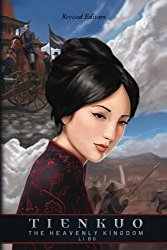
Beyond the Heavenly Kingdom
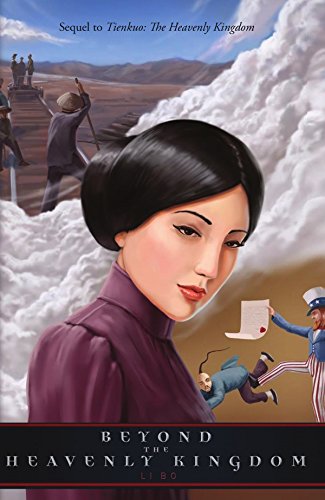
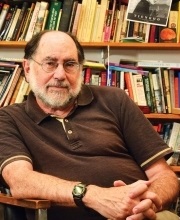 Welcome to Leibo’s World Watch. I created this site for the convenience of those interested in following my work as a political commentator and author of both non-fiction works of history and political science as well the Sino-American Tales, my series of historical novels on Sino-American relations in the 19th century. In the menu section you will also find more information on my WAMC Northeast Public Radio commentaries, annual textbook, East & Southeast Asia 2018-9 and the historical novels, Tienkuo: the Heavenly Kingdom and Beyond the Heavenly Kingdom. My current writing includes a third novel in the series above tentatively titled Challenging the Qing.
Welcome to Leibo’s World Watch. I created this site for the convenience of those interested in following my work as a political commentator and author of both non-fiction works of history and political science as well the Sino-American Tales, my series of historical novels on Sino-American relations in the 19th century. In the menu section you will also find more information on my WAMC Northeast Public Radio commentaries, annual textbook, East & Southeast Asia 2018-9 and the historical novels, Tienkuo: the Heavenly Kingdom and Beyond the Heavenly Kingdom. My current writing includes a third novel in the series above tentatively titled Challenging the Qing. 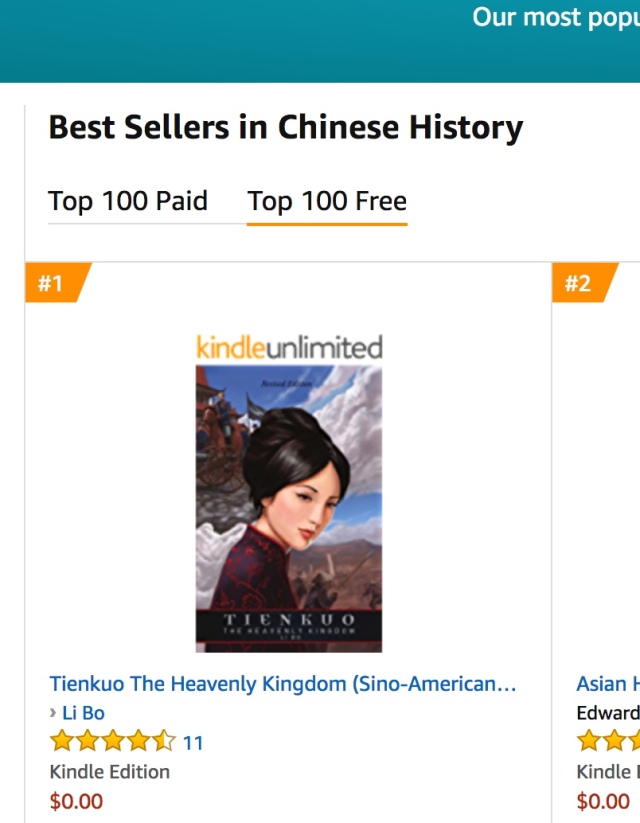
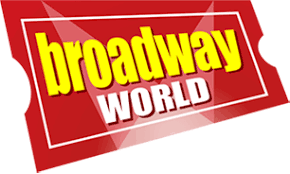





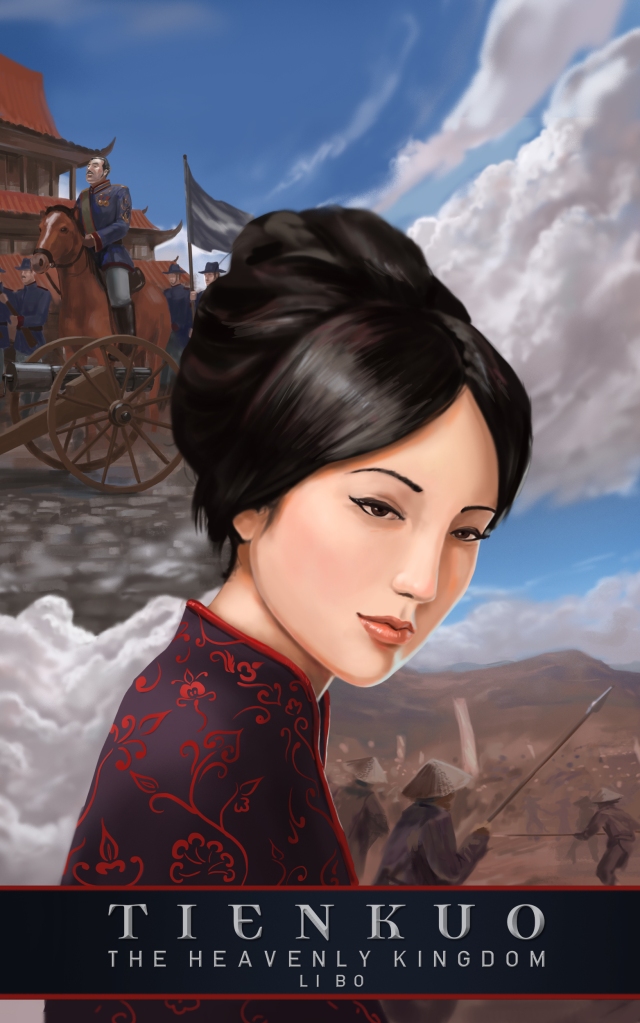
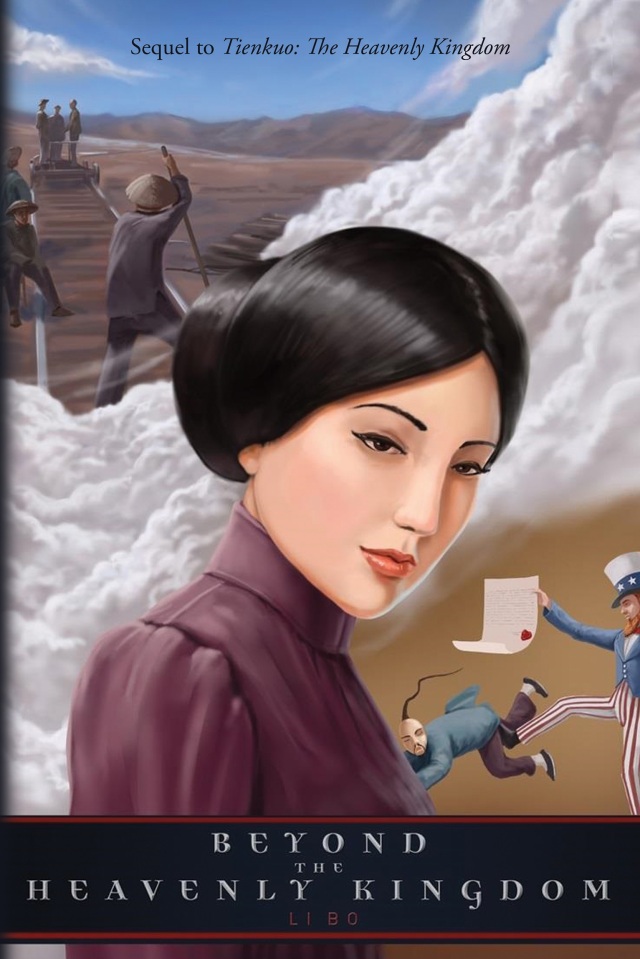
Fighting for Science & a Stable Climate
NOTE TO READERS— MORE RECENT WAMC Northeast Public Radio commentaries are available above listed with the WAMC page of this website.
Share this: